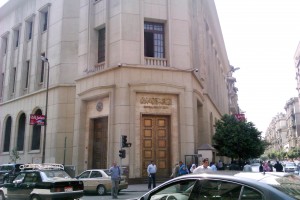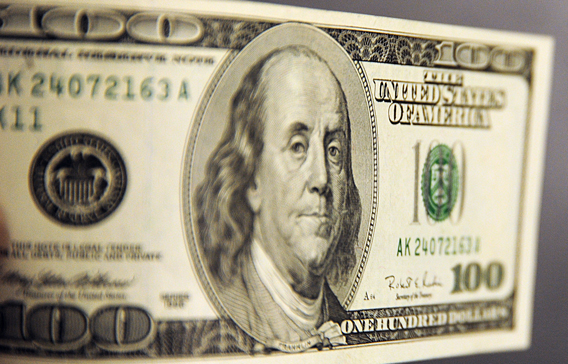
(Abdelazim Saafan/DNE Photo)
By Doaa Farid
The Central Bank of Egypt’s (CBE) decision to cut interest rates for the second time in a row on Thursday is seen to have a positive impact on the country’s slowing economy, and aims to boost investors’ lending, according to analysts.
The Monetary Policy Committee at the Central bank of Egypt decided to cut the overnight deposit rate, overnight lending rate and the rate of CBE’s main operation by 50 basis points to 8.75%, 9.75%, and 9.25%, respectively. The discount rate was also cut by 50 basis points to 9.25%.
Mohamed Abo Basha, an economist at Egyptian Financial Group-Hermes Holding (EFG-Hermes), said that the move was expected to curb inflation, and is also an “attempt to stimulate the economy will help the government to maintain price stability.”
Echoing this opinion, professor of finance and business administration, Alaa Mostafa, said: “It’s a reasonable reaction to the high volume of liquidity in banks, which must be followed by a cut in the interest rates.”
According to figures issued on Wednesday by the Central Bank, total deposits of the banking system, other than the central bank’s deposits, hiked in June by about EGP 21bn, which is equivalent to an increase of 1.8%. This was seen by experts as a sign an “economic deflation” indicator, as it means that investors feel investing their capital is a risk.
Mostafa also said that the evidence of liquidity abundance in the Central Bank is the drop in the US dollar’s value.
The Egyptian pound has lost over 15% of its value against the dollar during deposed President Mohamed Morsi’s one year in office, contributing to a 10.28% rise in the annual inflation in July, compared with 8.2% in May and 7.6% in March.
Mostafa expected this decision to reduce the burden on banks as well as investors, as the cost of financing them has decreased. In the long term, this will encourage investment.
“In general, it reflects a positive outlook on the economy,” he said.
Economics professor at Cairo University, Fakhri El-Fekky, said that the decision to reduce interest on public debt will help the government save EGP 8bn. “The interest rates have been downgraded two times by 50 points for each, and for each reduction of 1%, EGP 8bn are saved,” he said.
El-Fekky said: “Borrowing will be easier for whoever wants. This will encourage people to request loans and invest deposits and the banking system,” adding that this was a required decision.
“The latest monthly developments in both headline and core inflation were largely driven by increases in several food prices. Upside risks to the inflation outlook have moderated as the possibility of a rebound in international food prices is unlikely in light of recent global developments,” read the press release of the CBE on Thursday.
The Central Bank went on to add that investment levels remained low since early 2011 in addition to the private sector’s weak growth: “The downside risks to domestic GDP combined with the persistently negative output gap since 2011 will limit upside risks to the inflation outlook, going forward. Given that the downside risks to the GDP outlook still outweigh the upside risks to the inflation outlook, the MPC decided to further cut the key CBE rates.”
In August, CBE lowered its main overnight interest rate by 50 basis points.
Inflation rose by 0.7% during the month of August, the Central Agency for Public Mobilisation and Statistics (CAPMAS) indicated in its latest report issued on 10 September; the rate increased by 10.9% year on year to 139.3 points. The interim government’s efforts to alleviate financial woes included paying tuition fees of students attending public schooling across the republic.
In addition to that, Minister of Investment Osama Saleh issued a decision earlier last week to the Holding Company of Food Industries to provide basic food commodities to citizens with a price cut ranging from 10% to 15% in early October.




